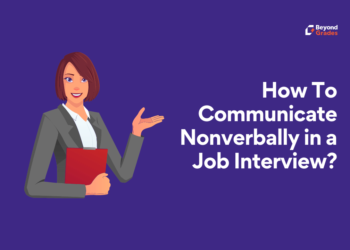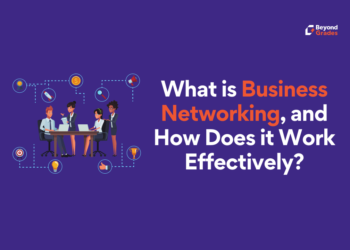[ad_1]
Do the words hard skills and soft skills ring a bell? If yes, great! And if not, we are here to help you understand the importance of these skills and why employers always look for candidates with a balance of both.
Let us understand the difference b/w hard skills and soft skills.
What are hard skills?
These are technical skills that are teachable. One learns hard skills in the course of their life experiences.
You must highlight these in your cv, resume, and cover letter to optimize these skills for a job interview.
Hard skills can range from education to the skills you might have learned in your workspace, like –
- A Content writer- efficiency at search engine optimization
- An Engineer- learning various languages such as Perl, Python, Java, Ruby, etc., through the college experience.
- A mobile journalist- learning how to use a camera. Other examples of hard skills
- Typing speak
- Proficiency in speaking English
- UI/UX Designing
- Certificate or degree
How to enhance your hard skills?
- Acquire as much experience as you can.
- Try enrolling yourself in a course for things you want to learn.
- Be an active member of whichever community you are in.
- Keep learning and collecting souvenirs for the same for a job interview. These could include official documents and certificates.
What are soft skills?
Soft skills are synonymous with interpersonal skills like communication skills.
How you interact with the people around you forms the basis of soft skills.
| Did you know?
Emotional Intelligence Quotient (E.Q.) is the technical name for soft skills. |
Two factors influence soft skills
Our genetics determine nature. It includes the biological influences we carry. Some can argue about what our genetics have to do with how we interact with people but think about it. How often have you acted differently just because you were insecure about something that was not in your control?
Even though nurture plays a more significant role in shaping our soft skills, nature, when collided with societal conditioning, can influence how we interact with people around us.
Example-
Crooked teeth in Japan are considered beautiful, for someone who might be insecure about their teeth in a different country would act differently when in Japan.
Now, this is not something ingrained in the stone. It does depend on how we are socially conditioned and how well we are nurtured to deal with this.
This includes our environment, upbringing, and experiences throughout our lives. Like, you might have gone through a rough patch, and now you are more calculated as a person.
How to enhance your soft skills?
- Practice Active listening
- Work on your oral communication
- Try to have a positive approach to life
- Enhance your confidence
You can do this by dressing in what makes your personality shine the most, keeping your posture straight, and trying to make eye contact when addressing someone.
Other examples of soft skills :
- Work ethic
- Empathy.
- Leadership
- Time management
- Listening.
- Negotiation.
- Positive Attitude.
- Teamwork.
- Patience
- Persuasion
| A little history of soft skills for the research affectionates
Paul G Whitmore first defined the concept of soft skills in a 1972 U.S. Training army handbook as “job-related skills involving actions primarily affecting people and paper, e.g., inspecting troops, supervising office personnel, conducting studies, preparing maintenance reports, preparing efficiency reports, designing bridge structures.”
|
How to highlight your hard skills and soft skills during a job interview?
These are a must mention in your
(Hard skills are more of a necessity to mention in the formal documents)
Soft skills will come in handy during the interview process. You should utilize these by adding them to the way you present yourself.
Example – If you are a great communicator and a witty person, utilize these soft skills during the interview by having a flowing conversation with the interviewee and woo them with these soft skills of yours!
when asked about circumstances that highlight your soft skills or hard skills, you can apply the STAR Technique for this
Example –
Position for an H.R.
“During the Pandemic, our business was falling short, so for our event management company, it was a blessing to have a big project in hand finally, but we were understaffed. I have always held a good repo with people I work with and kept in contact. This one time, I interned with an N.G.O. It had a good amount of volunteers, so I arranged a drive where the volunteers would help us with the event, and later we would give them resources like ration kits for underprivileged children under the wing of that N.G.O.”
- Match them to the Job description
Every job requires a distinct skill set. You do not want to mention how skilled a fisherman you are in an interview for a content writer.
Examples of matching hard and soft skills to JD
A teacher
Hard skills –
Degree and other professional qualifications like,
- B.Ed
- Schooling
- Career history and quantitative skills you learned with the experience
- Certificates or Awards for teaching
Soft skills –
- Leadership
- Communication
- Empathy
Management head
Hard Skills
- B.A.
- M.B.A.
- Typing speed
- Knows several languages
Soft Skills
- Negotiation
- Supervision
- Detail orientation
Top skills that will impress employers
Usually, most organizations have an ascertain criteria for individuals with soft skills such as patience, communication skills, interpersonal skills, etc.
Soft skills hold emphasis because hard skills can be taught with time, but soft ones result from years of conditioning that are not so easy to change.
Albeit, most employers look for hybrid skills.
Hybrid skills combine soft skills and technical knowledge with hard skills.
Key Takeaways
- Read the Job description thoroughly and match your soft and hard skills accordingly.
- The show, don’t tell
- Practice! Practice! Practice!
Now that you know the difference between hard skills and soft skills. It is your turn to use your skill set potential to the fullest And get selected by your dream company!
[ad_2]
Source link










